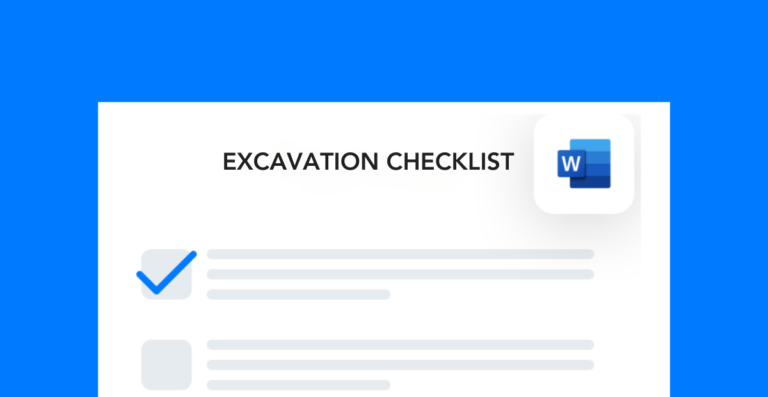Site preparation contractors play a big role in ensuring the safety of a construction worksite. Auditing their work is a preventive measure that you can take to protect your workers. By documenting your audits, you can better maintain regulatory compliance and defend yourself against litigation.
What is a site preparation contractor?
Site preparation contractors are individuals or companies that get a construction site ready for work to begin. They do this by clearing and grading the land, among other tasks.
The purpose of hiring contractors is to ensure that the worksite is properly graded to accommodate the project plans. If you don’t do this beforehand, you’ll almost certainly come across roadblocks that slow down your project or make it more dangerous for workers.
What is involved in site preparation?
The actual steps in the site preparation process depend on the type of project and the location itself. Factors like nearby structures, weather, soil type or quality, and local building requirements can impact the process. Here are some of the basic steps involved in most site preparation projects, however:
- Test the soil: Do a soil test to verify that it can withstand the project you’re building.
- Survey the ground: Check for wires, telephone lines, etc., that might be underground.
- Secure the area: Put up fences, wire, and other security features to protect the site.
- Install site boundaries: Block off the construction zone with boards and/or fencing.
- Clear the land: Remove existing structures, trees, and other debris.
- Grade the land: Get the land to the correct level for excavation to start.
- Set up utilities: Run utilities for power, water, and gas to the site.
The specifics for these steps should be outlined in your project planning document. You’ll want to know the results of your soil tests and ground surveys before you start any work.
How can I audit site preparation contractors?
The key to auditing your site preparation contractors is to establish your expectations in advance. You should know technical details like the project requirements for soil quality and grading, as well as operational details like how you want to set up the site.
If you don’t have these expectations in place before your contractors start prepping the site, it’s hard to evaluate their work. I’d recommend doing a continuous audit at each step in the process. Start by verifying the results of the soil tests and ground surveys.
Then, verify that the contractors have all the correct permits. You’ll need to have an open line of communication with your contractor and to establish your standards early on. Otherwise, it’s easy to fall behind on auditing each step and you’ll be more likely to miss something.
While audits can be tedious, they’re essential for ensuring the safety of the worksite. Since you’ll be liable for injuries and accidents at your worksite, you must make sure the work’s done correctly. If everything is safe to begin with, you’ll be better prepared to address and remove any safety concerns that come up.
How should I track my audits?
Tracking your audits is important for protecting your company against litigation or regulatory citations. That’s because it demonstrates your commitment to establishing and maintaining a safe worksite.
The best way to track audits is with audit tracking software. Software has many benefits over manual tracking systems, including:
- Making it easier to assign audits
- Giving you greater visibility over audit progress
- Allowing you to send reminder notifications
- Providing easy access to past audit data
- Storing all your data in one location
- Making audit documents accessible to everyone
Frontline ACT is a great option for tracking not site preparation contractor audits, but also inspections, continuous improvement projects, hazard assessments, and more. Book a demo with our sales team to learn more about it, or watch the webinar below.
Other posts you might like…
No posts

